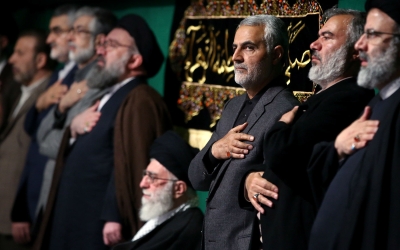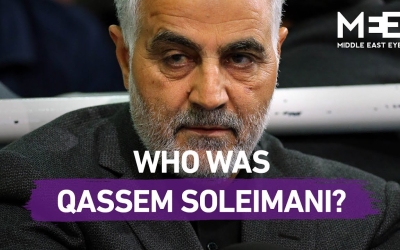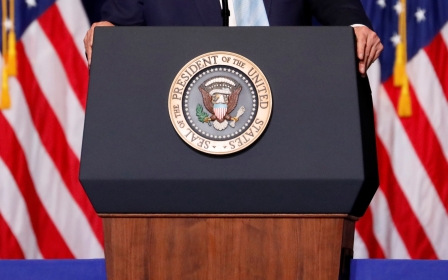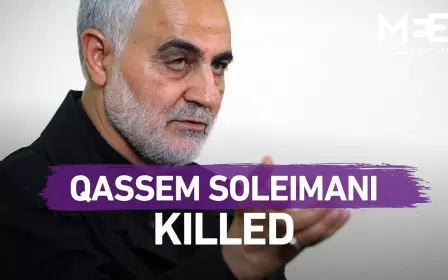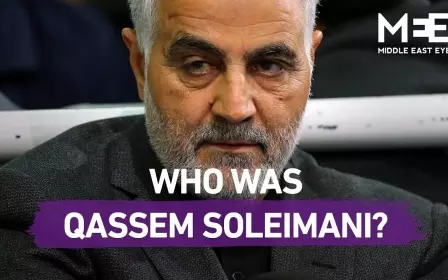Thousands attend funeral procession in Baghdad for Qassem Soleimani
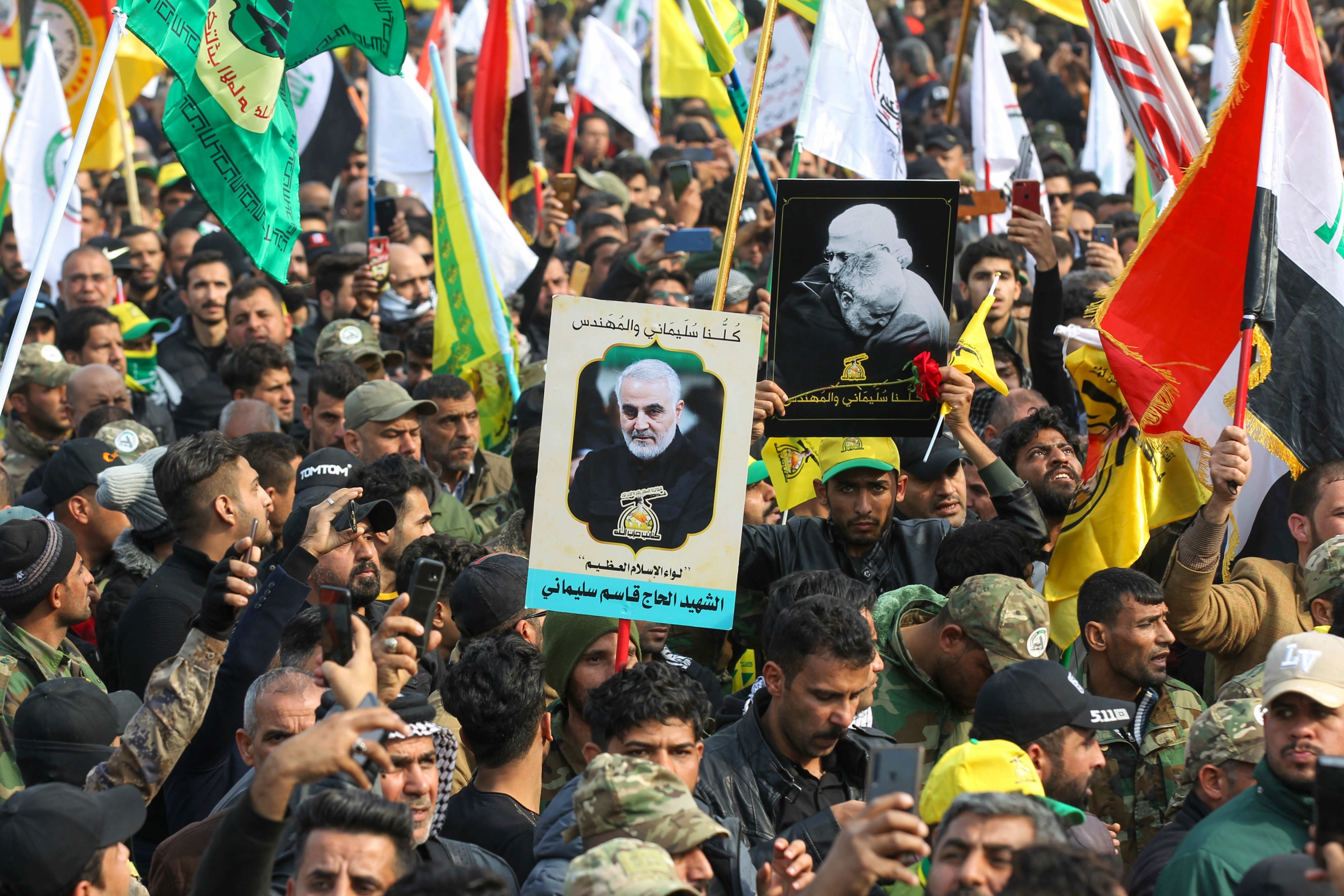
Thousands of Iraqis chanting "Death to America" on Saturday mourned the death of Iranian commander Qassem Soleimani and others killed in a US drone attack that has sparked fears of a regional proxy war between Washington and Tehran.
The killings on Friday were the most dramatic escalation yet in spiralling tensions between Iran and the United States, which pledged to send thousands more troops to the region.
Iraqi political leaders and clerics attended the mass ceremony to honour 62-year-old Soleimani, Iraqi paramilitary chief Abu Mahdi al-Muhandis and the other eight killed in the pre-dawn attack on Baghdad international airport.
Prime Minister Adel Abdul Mahdi and Iraqi militia commander Hadi al-Amiri, a close Iran ally and the top candidate to succeed Muhandis, attended.
US President Donald Trump said on Friday he had decided to "terminate" Iran's military mastermind to prevent an "imminent" attack on US diplomats and troops.
"We took action last night to stop a war. We did not take action to start a war," he insisted.
But the strike, which killed four more members of Iran's Islamic Revolutionary Guard Corps (IRGC) and five members of Iraq's Hashed al-Shaabi paramilitary network, infuriated Iran, whose ambassador to the United Nations, Majid Takht Ravanchi, called it an "act of war" by its arch-enemy.
On Saturday, Gholamali Abuhamzeh, a senior IRGC commander, said Tehran would punish Americans "wherever they are in reach," and raised the prospect of possible attacks on ships in the Gulf.
Mourning procession
Mass ceremonies started in Baghdad for Soleimani, a veteran military figure revered as a hero by many in Iran and the region, and the others killed in Friday's attack.
The coffins were first brought to a revered Shia shrine in northern Baghdad, where thousands of mourners chanted "Death to America!"
Dressed in black, they waved white Hashed flags and massive portraits of Iranian and Iraqi leaders, furiously calling for "revenge".
The crowds headed south to a point near the Green Zone, the high-security district home to government offices and foreign embassies, including America's.
The remains will later be taken to the holy city of Najaf to the south, and the remains of the Guards will then be flown to Iran, which has declared three days of mourning.
Soleimani's body will be transferred to the southwestern Iranian province of Khuzestan that borders Iraq.
On Sunday, it will be taken to the holy city of Mashhad in the northeast and from there to Tehran and on to his hometown Kerman in the southeast for burial on Tuesday, Iranian state media reported.
Tehran has already named Soleimani's deputy, Esmail Qaani, to replace him.
Opinion divided
US-Iranian hostilities have been playing out in Iraq in several incidents in recent days.
Pro-Iranian militia attacked the US embassy in Baghdad earlier this week following a deadly US air raid on the Kataib Hezbollah (KH) militia, founded by Muhandis.
The US air raid against KH came after a rocket attack in northern Iraq killed an American contractor and wounded several military personnel on 30 December.
Amid the tensions, the Pentagon said up to 3,500 additional US troops would be dispatched to Iraq's southern neighbour Kuwait, to boost some 14,000 reinforcements already deployed to the region last year.
US citizens were meanwhile urged to leave Iraq immediately and American staff were being evacuated from oil fields in the south.
Friday's killing of Soleimani appeared to have divided Iraqi opinion.
Many condemned the strikes, seeing Soleimani as a hero for his role in defeating IS.
Others voiced approval, saying Soleimani and Muhandis had backed the use of force against unarmed anti-government protesters last year and established militias that demonstrators blame for many of Iraq's social and economic woes.
Many Iraqis criticised Washington for killing the men on Iraqi soil and possibly plunging the country into another war.
Middle East Eye delivers independent and unrivalled coverage and analysis of the Middle East, North Africa and beyond. To learn more about republishing this content and the associated fees, please fill out this form. More about MEE can be found here.


